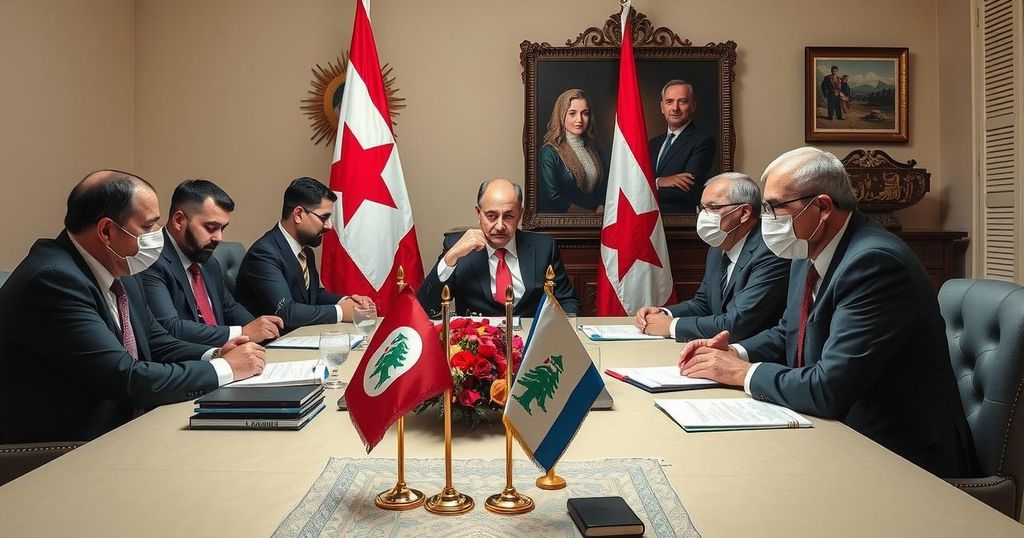Lebanese leaders are in discussions for a presidential election without a leader for over two years. Army Chief Joseph Aoun is seen as the frontrunner but faces opposition. External pressures from France and the U.S. have increased, urging for political consensus amid Hezbollah’s weakened stance. The outcome remains uncertain as factions negotiate support ahead of the vote.
Lebanese political leaders engaged in discussions ahead of a parliamentary session set to elect a new president. The country has been without a president for over two years amid significant political and economic turmoil, deepened by divisions between Hezbollah and its opponents. Army Chief Joseph Aoun is viewed as the leading candidate, particularly with expectations for a military presence in southern Lebanon following a recent ceasefire. However, reluctance from various political factions to support his candidacy complicates the election process, which marks the thirteenth attempt since the previous president’s term ended in October 2022.
The external diplomatic pressure from countries such as France and the United States has intensified, with envoys visiting Lebanon to urge a resolution. Following a year of conflict resulting in Hezbollah’s diminished power, Lebanon’s politicians are being called upon to cooperate in selecting a leader. The political landscape is further influenced by regional actors like Saudi Arabia, which seeks to foster consensus among hesitant factions. Despite ongoing divisions, caretaker Prime Minister Najib Mikati expressed optimism about electing a president for the first time since the vacancy occurred.
Parliament Speaker Nabih Berri’s invitation to French envoy Jean-Yves Le Drian for the upcoming vote signifies international engagement in the process. The president is required to be a Maronite Christian and usually necessitates the support of prominent Christian political parties. Potential candidates include Joseph Aoun, although the Free Patriotic Movement, led by Gebran Bassil, has explicitly opposed him. Critically, Hezbollah’s ability to impose a candidate has been impaired, signaling a shifting political dynamic as Lebanon grapples with its unprecedented financial crisis.
Lebanon has experienced political and economic crises over the past few years, leading to significant unrest and divisions within its political class. The absence of a president for over two years has exacerbated the instability and created a vacuum in leadership. Currently, Hezbollah, a significant political force within the country, is under pressure from both local factions and international actors to support a presidential candidate that could facilitate reform efforts necessary to stabilize the nation. The backdrop of external influences, notably from the United States, France, and Saudi Arabia, highlights Lebanon’s intricate geopolitical situation and the broader implications for regional stability.
In summary, Lebanon’s ongoing political stalemate surrounding the presidential election reflects deep-seated divisions among its political elite, compounded by external pressures. While Army Chief Joseph Aoun emerges as a frontrunner, significant obstacles remain, including opposition from key political factions. The next parliamentary session represents another critical juncture for Lebanon to define its leadership and address the urgent need for reform amid a profound economic crisis. The outcome will depend on the willingness of various stakeholders to reach a consensus and prioritize the country’s need for stability and progress.
Original Source: www.barrons.com






